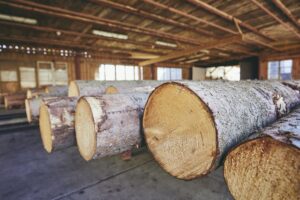Discover NAE Vegan Shoes, the brand that encompasses the ideals of veganism, sustainability, and empathy. With a firm commitment to providing ethical and eco-friendly alternatives, NAE Vegan Shoes has become a leading name in the world of cruelty-free footwear. In this blog post, we will delve into the core values of NAE and explore how they are revolutionizing the industry.
Nae’s Commitment to Veganism
At the heart of NAE Vegan Shoes lies their “No Animal Exploitation” (NAE) philosophy. They take pride in offering a diverse range of shoes and accessories that are 100% vegan. NAE firmly believes in providing an alternative to animal-derived materials, ensuring that none of their products include animal skin, fur, or any other meat by-products. Choosing NAE Vegan Shoes allows you to enjoy stylish, high-quality footwear without compromising your ethical principles.
Sustainability and Environmental Responsibility
NAE Vegan Shoes walks the talk when it comes to environmental responsibility. They meticulously select their materials, considering their ecological impact. From synthetic alternatives to leather to innovative materials like piñatex (made from pineapple leaf fibers), organic cotton, cork, recycled PET, and vegan leather, NAE ensures that their choices align with their sustainability goals. Additionally, their packaging is 100% recyclable, minimizing waste and promoting a circular economy.
Ethical Manufacturing Practices
NAE Vegan Shoes holds their manufacturing process to the highest ethical standards. They collaborate with certified and ethical factories in Portugal and Spain, prioritizing work ethics and employee rights. By maintaining healthy and fair working conditions, NAE fosters an environment where employees are respected, and their rights are protected. They strictly prohibit child labor practices and the employment of workers under 18 years old. Gender equality is also promoted, encouraging mutual respect among all employees.
Stylish Designs and Quality
While NAE Vegan Shoes champions ethical and sustainable practices, they never compromise on style or quality. Their designers create contemporary and fashion-forward footwear options for women, men, and unisex styles. Whether looking for flats, heels, sandals, sneakers, or boots, NAE has many options for various occasions. Their commitment to durable materials ensures that their footwear is ethically produced and built to last.
Final Thoughts
NAE Vegan Shoes is at the forefront of the sustainable, cruelty-free footwear movement. Their dedication to veganism, sustainability, and compassion sets them apart. By choosing NAE Vegan Shoes, you support a brand that aligns with your values and contributes to a more compassionate and eco-conscious world. Embrace the stylish designs, high-quality craftsmanship, and ethical principles of NAE Vegan Shoes, and take a step towards sustainable fashion.
Related Topic:
Unveiling the Sole Truth: The Grave Importance of Animal Welfare in Shoe Manufacturing
The connection between animal welfare and manufacturing practices is often overlooked. However, the significance of animal welfare in shoe making cannot be understated. The choices we make as consumers and the actions taken by shoe manufacturers have far-reaching ethical, environmental, and societal implications. In this blog post, we will delve into the seriousness of animal welfare in the shoe industry, exploring the ethical dilemma, environmental implications, industry response, consumer awareness, legal landscape, and the path forward.
The Ethical Dilemma
Shoes have traditionally been made using animal materials such as leather, fur, and exotic skins. However, using these materials raises ethical concerns surrounding animal exploitation, cruelty, and suffering. Animals raised for their skins often endure inhumane conditions, cramped spaces, and painful procedures. A serious ethical dilemma arises when we consider the impact of our choices as consumers on the well-being of these animals. Increasingly, consumers demand transparency and ethically sourced products, creating a pivotal moment for the industry to address these concerns.
Environmental Implications
Beyond ethical concerns, the shoe manufacturing industry has a significant environmental footprint. Animal agriculture, which supplies the leather industry, contributes to deforestation, water pollution, and greenhouse gas emissions. Additionally, the tanning process involves toxic chemicals, further harming ecosystems and human health. The urgency to adopt sustainable practices in shoe manufacturing is paramount to mitigate these environmental impacts and preserve the planet for future generations.
Industry Response
Fortunately, many shoe manufacturers recognize the importance of animal welfare and are actively addressing these concerns. The rise of vegan and cruelty-free footwear options has provided consumers with alternatives that align with their values. Moreover, industry leaders are partnering with animal welfare organizations, adopting certifications, and implementing stricter supply chain controls to ensure transparency and accountability.
Consumer Awareness and Choices
Consumer awareness of animal welfare issues has been steadily growing, driving significant changes in the industry. People increasingly make conscious choices to support brands prioritizing ethical sourcing and animal-friendly manufacturing practices. Consumers are encouraging manufacturers to adopt cruelty-free and sustainable approaches by voting with their wallets. Educating ourselves about the production process and seeking out brands committed to animal welfare can make a real difference in shaping the industry.
Legal and Regulatory Landscape
While some animal welfare laws and regulations exist within the shoe manufacturing industry, there is still much room for improvement. Stricter regulations and better enforcement mechanisms are needed to ensure the ethical treatment of animals throughout the supply chain. The collaboration between governments, industry stakeholders, and animal welfare organizations is crucial in developing and implementing effective regulations that protect animal rights and welfare.
The Path Forward
Collective responsibility is required to address the seriousness of animal welfare in shoe manufacturing. Consumers must continue to prioritize ethical choices and demand transparency from brands. Industry leaders must embrace sustainable and cruelty-free practices while investing in research and innovation for alternative materials. Governments and regulatory bodies should strengthen animal welfare regulations and enforce them effectively.
Final Thoughts
The gravity of animal welfare in shoe manufacturing cannot be ignored. The choices we make as consumers and the actions taken by the industry have far-reaching consequences. By raising awareness, supporting ethical brands, and demanding change, we can transform towards a more compassionate and sustainable future for animals and the environment. Let us unite in unveiling the sole truth and taking meaningful steps towards a more ethical and responsible shoe industry.
The Brand
NAE Vegan Shoes is a leading brand in cruelty-free footwear, embodying veganism, sustainability, and empathy through their ethical and eco-friendly shoe alternatives.









Reader Interactions